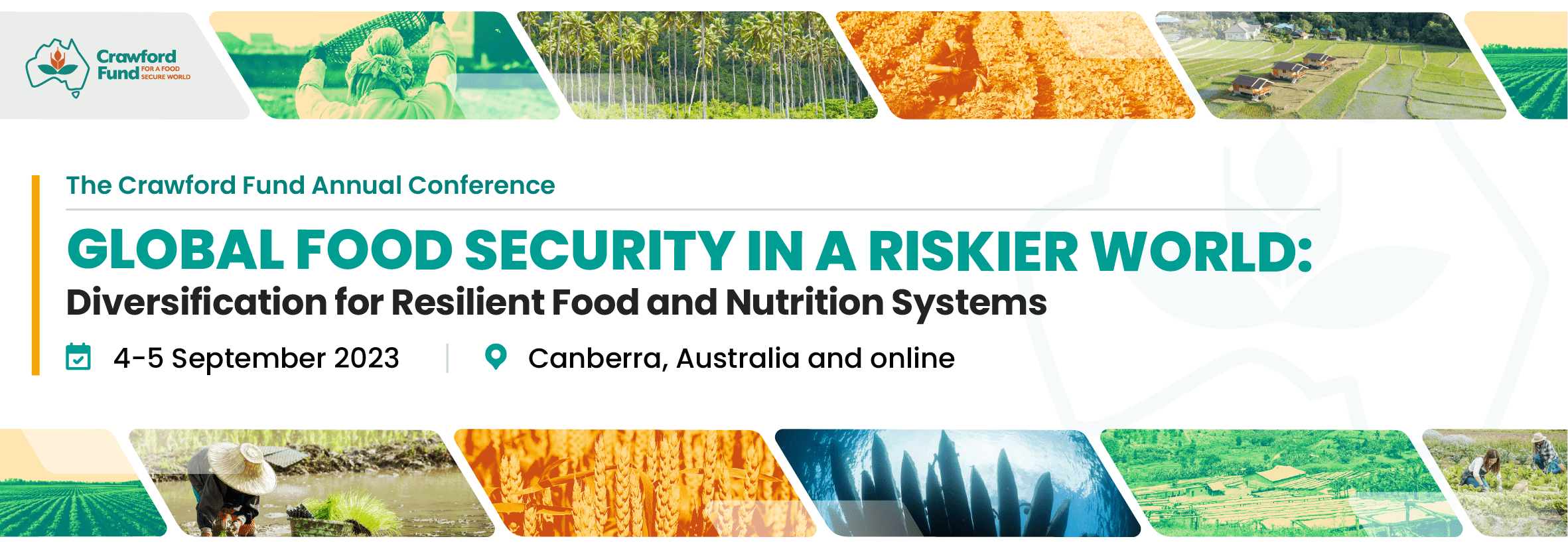


Background for our 2023 Conference
It is commonly argued that global food security is being substantially impacted by the 3Cs, Covid, Climate Change and Conflict. Whilst we can hope that the worst of the Covid pandemic is behind us, epidemiologists point out that the risks of new pandemics are ever present and probable within even a ten- year time frame.
Risks associated with climate change are, however, steadily increasing and include higher probabilities of droughts and floods and increasing temperatures with consequent pressures not only on agriculture but also on the ecosystems that support it. It can also be argued that changing environmental conditions can lead to the crossing of thresholds in terms of water supply, animal habitats and pest and disease prevalence, which have the potential to seriously affect crop production, food security and human health.
The conflict between Russia and Ukraine has severely impacted the supply of relatively cheap grains and oilseed exports from central Europe, with significant price and food security impacts on many countries which previously depended on access to these commodities. The energy price increases associated with the conflict have also had very significant impacts on fertiliser production costs and energy costs on farms, further increasing farm gate prices.
The 3Cs demonstrate just how sensitive the task of feeding 8 billion people is to extraneous forces and the fact that food and nutrition security in an ever-changing world can never be taken for granted.
It is clear from the current global situation that whilst some of the above risks are widespread, others are localised. This suggests that all countries need to prioritise different mitigation actions and ensure that they have adequate policy frameworks, institutional capacity and participatory frameworks to allow agriculture to adapt to threats to production at the on-farm level. However, these responses need to be considered in the context of other off-farm factors such as labour supply, market and trade drivers and broader issue of environment and sustainability.
Consequently, the goal of the Crawford Fund 2023 Annual Conference is to consider how farmers the world over, who are generally facing similar significant risks, can understand risks and adapt and diversify to sustain production. Diversified agricultural production systems have the potential to lead to greater bio-physical and economic resilience and thus sustainability for all. Furthermore, diversification of production options on smallholder farms may also increase the potential for improving nutritional options for consumers. To this end, our key conference themes will examine on and off farm risks and solutions and key policy settings that will facilitate the development of resilient farming systems.
With some difficulty, we have chosen just a small sample of impact and success under on-farm and off-farm risks, with our usual focus on developing country farming systems. What is happening in terms of production and markets will not only have a major impact on food and nutrition elsewhere but may also provide important lessons on appropriate ways in which to improve resilience.
Our conference audience will again include views from science, agriculture, politics, business and civil society to help focus our attention on the way forward.
We look forward to seeing you at our 2023 conference and hope that the focus on these significant issues improves understanding and appreciation on future directions to ensure food and nutrition security in an increasingly riskier world.